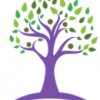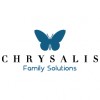
To find the community assistance to meet your needs through United Way, call 330-263-6363 or call the crisis number at 330-264-9029 if you are experiencing a mental health emergency. We provide funding to improve awareness of and access to mental health and addiction treatment and prevention services in Wayne & Holmes Counties.
Our agencies provide addiction treatment programs, mental health counseling, suicide prevention programming, and more!. We provide leadership, support, and funding to community partners and agencies in the delivery of mental health and addiction prevention, treatment, and recovery services.
Our agencies provide addiction treatment programs, mental health counseling, suicide prevention programming, and more!. We provide leadership, support, and funding to community partners and agencies in the delivery of mental health and addiction prevention, treatment, and recovery services.
Services
Home-based counseling services for children and families are available on a selected basis. Suicide Prevention Coalition which aims to reduce the number of suicides through education and support. OASIS Recovery Club: Provides a safe, alcohol and drug-free environment to help bridge the gap between the solitude of addiction and the recovering individual's return to our community.
Wayne and Holmes County youth and young adults (ages 8-24) who are MI/DD (co-occurring mental illness and developmental disability) or MI/DD borderline with aggressive, violent behaviors who are at risk of out-of-home placement. Identify strengths and needs of the families and build resource networks for those dually diagnosedEnlist families for Hi-Fidelity Wraparound process and then provide support to families/individuals.
The BH/JJ (Behavioral Health/Juvenile Justice) initiative began with the hiring of two MST (Multi-Systemic Therapy) therapists to join an existing MST team out of Crisis Intervention and Recovery Center in Canton.
Through a partnership with the Center for Evidence-Based Practices at Case Western Reserve University, data on our youth in the program will be utilized to determine reductions in out-of-home placement, better performance in school, and other important factors.
Through a partnership with the Center for Evidence-Based Practices at Case Western Reserve University, data on our youth in the program will be utilized to determine reductions in out-of-home placement, better performance in school, and other important factors.
When we talk about health, we can't just focus on heart health, or liver health, or brain health, and not whole health. You have to see the whole person, and make use of the tools and resources that benefit minds and bodies together. That's why this toolkit for everyone, whether or not they have a mental health concern.
Yes, research shows that the success rates for addiction treatment are equal to the success rates for other chronic illnesses such as diabetes, hypertension and asthma. Approximately 40 - 60% of individuals who complete chemical dependency treatment and attend self help groups (such as Alcoholics Anonymous) are likely to remain abstinent from alcohol or other drugs.
Reviews

Be the first to review Mental Health Recovery Board.
Write a Review